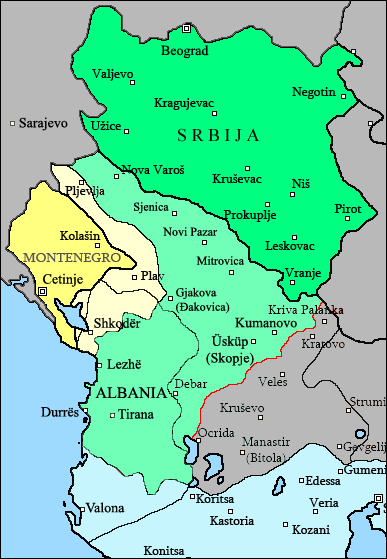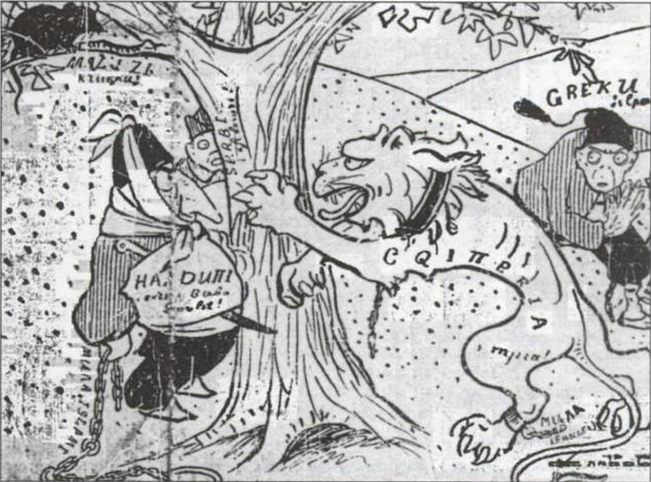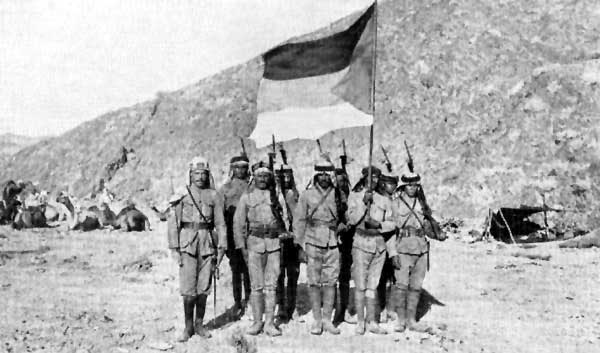|
Albania–Yugoslavia Relations
Albania–Yugoslavia relations (; sh-Latn-Cyrl, Albansko-jugoslavenski odnosi, Албанско-југословенски односи; ; ) were historical foreign relations between Albania (both Kingdom of Albania 1928-1939 and the People's Socialist Republic of Albania 1946–1992) and now broken up Yugoslavia (Kingdom of Yugoslavia 1918-1941 and Socialist Federal Republic of Yugoslavia 1945–1992). With occasional periods of friendly relations or efforts to improve relations, the two countries predominantly maintained cold or openly hostile relations. The period of close relations developed right after the end of World War II when Yugoslavia pushed for socioeconomic integration of Albania into Yugoslavia within the Balkan Federation (bargaining with the idea of unification of Albania with kinship region of Kosovo); however, the two countries turned to sharp antagonism after the 1948 Tito–Stalin split. History Albanian early relations with Yugoslavia were preceded by it ... [...More Info...] [...Related Items...] OR: [Wikipedia] [Google] [Baidu] |
Albania
Albania ( ; or ), officially the Republic of Albania (), is a country in Southeast Europe. It is located in the Balkans, on the Adriatic Sea, Adriatic and Ionian Seas within the Mediterranean Sea, and shares land borders with Montenegro to the northwest, Kosovo to the northeast, North Macedonia to the east and Greece to the south. With an area of , it has a varied range of climatic, geological, hydrological and morphological conditions. Albania's landscapes range from rugged snow-capped mountains in the Accursed Mountains, Albanian Alps and the Korab, Central Mountain Range, Albania#Skanderbeg Mountains, Skanderbeg, Pindus and Ceraunian Mountains, to fertile lowland plains extending from the Albanian Adriatic Sea Coast, Adriatic and Albanian Ionian Sea Coast, Ionian seacoasts. Tirana is the capital and largest city in the country, followed by Durrës, Vlorë, and Shkodër. Albania was inhabited by several List of Illyrian peoples and tribes, Illyrian tribes, among them the A ... [...More Info...] [...Related Items...] OR: [Wikipedia] [Google] [Baidu] |
Balkans
The Balkans ( , ), corresponding partially with the Balkan Peninsula, is a geographical area in southeastern Europe with various geographical and historical definitions. The region takes its name from the Balkan Mountains that stretch throughout the whole of Bulgaria. The Balkan Peninsula is bordered by the Adriatic Sea in the northwest, the Ionian Sea in the southwest, the Aegean Sea in the south, the Turkish straits in the east, and the Black Sea in the northeast. The northern border of the peninsula is variously defined. The highest point of the Balkans is Musala, , in the Rila mountain range, Bulgaria. The concept of the Balkan Peninsula was created by the German geographer August Zeune in 1808, who mistakenly considered the Balkan Mountains the dominant mountain system of southeastern Europe spanning from the Adriatic Sea to the Black Sea. In the 19th century the term ''Balkan Peninsula'' was a synonym for Rumelia, the parts of Europe that were provinces of the Ottoman E ... [...More Info...] [...Related Items...] OR: [Wikipedia] [Google] [Baidu] |
Mediterranean
The Mediterranean Sea ( ) is a sea connected to the Atlantic Ocean, surrounded by the Mediterranean basin and almost completely enclosed by land: on the east by the Levant in West Asia, on the north by Anatolia in West Asia and Southern Europe, on the south by North Africa, and on the west almost by the Morocco–Spain border. The Mediterranean Sea covers an area of about , representing 0.7% of the global ocean surface, but its connection to the Atlantic via the Strait of Gibraltar—the narrow strait that connects the Atlantic Ocean to the Mediterranean Sea and separates the Iberian Peninsula in Europe from Morocco in Africa—is only wide. Geological evidence indicates that around 5.9 million years ago, the Mediterranean was cut off from the Atlantic and was partly or completely desiccated over a period of some 600,000 years during the Messinian salinity crisis before being refilled by the Zanclean flood about 5.3 million years ago. The sea was an important rout ... [...More Info...] [...Related Items...] OR: [Wikipedia] [Google] [Baidu] |
Russian Empire
The Russian Empire was an empire that spanned most of northern Eurasia from its establishment in November 1721 until the proclamation of the Russian Republic in September 1917. At its height in the late 19th century, it covered about , roughly one-sixth of the world's landmass, making it the list of largest empires, third-largest empire in history, behind only the British Empire, British and Mongol Empire, Mongol empires. It also Russian colonization of North America, colonized Alaska between 1799 and 1867. The empire's 1897 census, the only one it conducted, found a population of 125.6 million with considerable ethnic, linguistic, religious, and socioeconomic diversity. From the 10th to 17th centuries, the Russians had been ruled by a noble class known as the boyars, above whom was the tsar, an absolute monarch. The groundwork of the Russian Empire was laid by Ivan III (), who greatly expanded his domain, established a centralized Russian national state, and secured inde ... [...More Info...] [...Related Items...] OR: [Wikipedia] [Google] [Baidu] |
Great Powers
A great power is a sovereign state that is recognized as having the ability and expertise to exert its influence on a global scale. Great powers characteristically possess military and economic strength, as well as diplomatic and soft power influence, which may cause middle or small powers to consider the great powers' opinions before taking actions of their own. International relations theorists have posited that great power status can be characterized into power capabilities, spatial aspects, and status dimensions. While some nations are widely considered to be great powers, there is considerable debate on the exact criteria of great power status. Historically, the status of great powers has been formally recognized in organizations such as the Congress of Vienna of 1814–1815Danilovic, Vesna. "When the Stakes Are High – Deterrence and Conflict among Major Powers", University of Michigan Press (2002), pp 27, 225–22(PDF chapter downloads) [...More Info...] [...Related Items...] OR: [Wikipedia] [Google] [Baidu] |
Albania During The Balkan Wars
Independent Albania was proclaimed on 28 November 1912. This chapter of Albanian history was shrouded in controversy and conflict as the larger part of the self-proclaimed region had found itself controlled by the Balkan League states: Serbia, Montenegro and Greece from the time of the declaration until the period of recognition when Albania relinquished many of the lands originally included in the declared state. Since the proclamation of the state in November 1912, the Provisional Government of Albania asserted its control over a small part of central Albania including the important cities of Vlorë and Berat. Background Provisional Government of Albania 1912 was to be an eventful year in Rumelia. From August, the Ottoman Government recognised the autonomy of Albania. In October 1912, the Balkan states, following their own national aspirations jointly attacked the Ottoman Empire and during the next few months partitioned nearly all of Rumelia, the Ottoman territories in E ... [...More Info...] [...Related Items...] OR: [Wikipedia] [Google] [Baidu] |
Sick Man Of Europe
"Sick man of Europe" is a label given to a state located in Europe that is experiencing economic difficulties, social unrest or impoverishment. It is most famously used to refer to the Ottoman Empire (predecessor of present-day Turkey) whilst it was in a state of decline in the 19th century. Emperor Nicholas I of the Russian Empire is considered to be the first to use the term "Sick Man" to describe the Ottoman Empire in the mid-19th century. The characterization existed during the " Eastern question" in diplomatic history, which also referred to the decline of the Ottoman Empire in terms of the balance of power in Europe. After the dissolution of the Ottoman Empire in the early 20th century, the term has been applied to other states. In modern usage, the term has faced criticism due to its origins and arguable over-usage. Throughout the 1960s to the 1980s, the term was also most notably used for the United Kingdom when it lost its superpower status as the Empire crumbled a ... [...More Info...] [...Related Items...] OR: [Wikipedia] [Google] [Baidu] |
Kingdom Of Greece
The Kingdom of Greece (, Romanization, romanized: ''Vasíleion tis Elládos'', pronounced ) was the Greece, Greek Nation state, nation-state established in 1832 and was the successor state to the First Hellenic Republic. It was internationally recognised by the Treaty of Constantinople (1832), Treaty of Constantinople, where Greece also secured its full independence from the Ottoman Empire after nearly four centuries. It remained a Kingdom until 1924, when the Second Hellenic Republic was proclaimed, and from the Republic's collapse in 1935 to its 1973 Greek republic referendum, dissolution by the Greek Junta, Regime of the Colonels in 1973. A 1974 Greek republic referendum, referendum following the Metapolitefsi, regime's collapse in 1974 confirmed the effective dissolution of the monarchy and the creation of the Third Hellenic Republic. For much of its existence, the Kingdom's main ideological goal was the Megali Idea (Greek: Μεγάλη Ιδέα, romanized: Megáli Idéa, lit ... [...More Info...] [...Related Items...] OR: [Wikipedia] [Google] [Baidu] |
Kingdom Of Bulgaria
The Tsardom of Bulgaria (), also known as the Third Bulgarian Tsardom (), usually known in English as the Kingdom of Bulgaria, or simply Bulgaria, was a constitutional monarchy in Southeastern Europe, which was established on , when the Bulgarian state was raised from a Principality of Bulgaria, principality to a tsardom. Prince Ferdinand I of Bulgaria, Ferdinand, founder of the Bulgarian royal family, royal family, was crowned as Tsar of Bulgaria, tsar at the Declaration of Independence, mainly because of his military plans and for seeking options for unification of all lands in the Balkans region with an ethnic Bulgarian majority (lands that had been seized from Bulgaria and given to the Ottoman Empire in the Treaty of Berlin (1878), Treaty of Berlin). He and his successors were reckoned as kings internationally. The state was almost constantly at war throughout its existence, lending to its nickname as "the Balkan Prussia". For several years Bulgaria mobilized an army of more ... [...More Info...] [...Related Items...] OR: [Wikipedia] [Google] [Baidu] |
First Balkan War
The First Balkan War lasted from October 1912 to May 1913 and involved actions of the Balkan League (the Kingdoms of Kingdom of Bulgaria, Bulgaria, Kingdom of Serbia, Serbia, Kingdom of Greece, Greece and Kingdom of Montenegro, Montenegro) against the Ottoman Empire. The Balkan states' combined armies overcame the initially numerically inferior (significantly superior by the end of the conflict) and strategically disadvantaged Ottoman armies, achieving rapid success. The war was a comprehensive and unmitigated disaster for the Ottomans, who lost 83% of their European territories and 69% of their European population.''Balkan Savaşları ve Balkan Savaşları'nda Bulgaristan'' Süleyman Uslu As a result of the war, the League captured and partitioned al ... [...More Info...] [...Related Items...] OR: [Wikipedia] [Google] [Baidu] |
Rise Of Nationalism In The Ottoman Empire
The rise of the Western notion of nationalism in the Ottoman Empire eventually caused the breakdown of the Ottoman ''millet'' system. The concept of nationhood, which was different from the preceding religious community concept of the millet system, was a key factor in the decline of the Ottoman Empire. Background In the Ottoman Empire, the Islamic faith was the official religion, with members holding all rights, as opposed to Non-Muslims, who were restricted. Non-Muslim ('' dhimmi'') ethno-religious legal groups were identified as different '' millets'', which means "nations". Ideas of nationalism emerged in Europe in the 19th century at a time when most of the Balkans were still under Ottoman rule. The Christian peoples of the Ottoman Empire, starting with Serbs and Greeks, but later spreading to Montenegrins and Bulgarians, began to demand autonomy in a series of armed revolts beginning with the Serbian Revolution (1804–17) and the Greek War of Independence (1821–29 ... [...More Info...] [...Related Items...] OR: [Wikipedia] [Google] [Baidu] |
Balance Of Power (international Relations)
The balance of power theory in international relations suggests that states may secure their survival by preventing any one state from gaining enough military power to dominate all others. If one state becomes much stronger, the theory predicts it will take advantage of its weaker neighbors, thereby driving them to unite in a defensive coalition. Some realists maintain that a balance-of-power system is more stable than one with a dominant state, as aggression is unprofitable when there is equilibrium of power between rival coalitions. When threatened, states may seek safety either by ''balancing'', allying with others against the prevailing threat; or '' bandwagoning'', aligning themselves with the threatening power. Other alliance tactics include ''buck passing'' and ''chain-ganging''. Realists have long debated how the polarity of a system impacts the choice of tactics; however, it is generally agreed that in bipolar systems, each great power has no choice but to direct ... [...More Info...] [...Related Items...] OR: [Wikipedia] [Google] [Baidu] |







